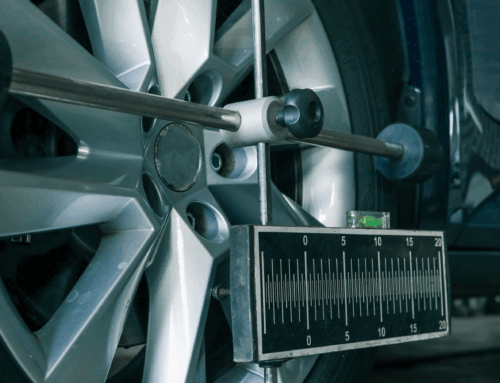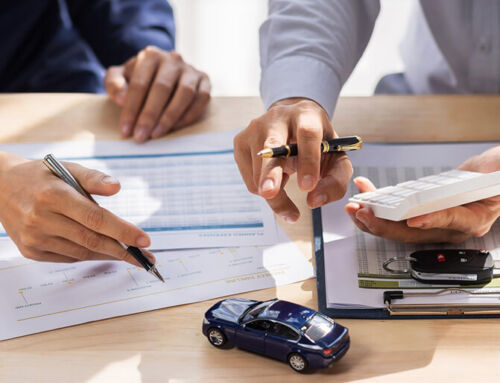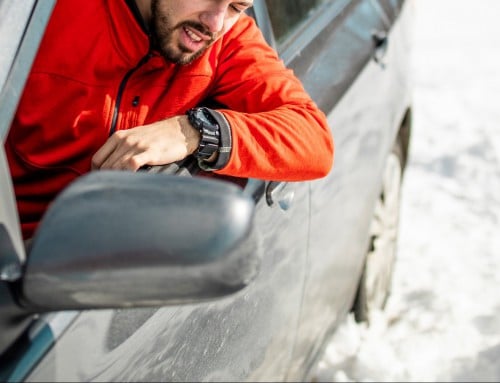Before hitting the road, you should make sure you have a few essentials. Everyone knows that certain items are a must, like a driver’s license or your vehicle registration. But what about the essentials that aren’t legally required but could make a world of difference should you run into a problem?
Picture this: you’re happily driving down the road when your car decides to unexpectedly break down. You manage to pull over to the side of the street, but your car dies shortly after. It’s cold, you have no heat, and you’re starting to get hungry.
Luckily, there’s an easy way to avoid this situation, or at least make sure you’re not cold and hungry while it’s happening. That’s where a car emergency kit comes in, which can be easily stored in the trunk of your vehicle. But what should you keep in your emergency kit or the kits inside your company cars? We have a few suggestions.
The basics
Drivers can customize their kits for their own particular needs, but there are a few items that may come in handy if your car breaks down or you find yourself in an accident:
- A tow rope or chain
- Booster cables
- Fuel line antifreeze
- A small tool kit
- A fire extinguisher
- Car jack
- Spare tire
During the winter
When the weather cools down, it’s even more dangerous to be stranded in your car. That’s not to say you shouldn’t have a kit prepared in the summer, but with freezing cold temperatures to combat in the winter, it’s especially important to have some items prepared to keep you warm. Here are a few items that could come in handy should you be trapped in a snowstorm:
- A first aid kit
- Band-aids
- Bottled water
- Energy bars
- Roadmaps
- Gloves
- Matches
- A blanket
- Extra clothing and footwear
- Emergency food (non-perishable, such as canned fruit, nut, candy, etc.)
- A can opener and a pocketknife
- A candle and a deep can to place it in when it’s lit
It’s also a good idea to keep your phone fully charged and with you at all times so you can call someone if you’re stranded. Also, consider placing a shovel in your trunk so that if you’re ever stuck in deep snow or there’s an excess of ice buildup on your windshield, you can deal with it easily.
To alert rescuers
It doesn’t hurt to have the necessary equipment to make sure you get help when you need it. In order to do this, you could pack the following items:
- Road flares or warning lights
- Bright cloth to use as a flag
- A “call police” sign
- A flashlight and extra batteries
Always drive responsibly
A roadside safety kit is great to have but a number of accidents can be prevented by simply driving responsibly once you’re on the road.
As basic as it sounds, driving slowly in the snow can make a world of difference. It’s important to always be aware of your surroundings, to never use cruise control if conditions are snowy, icy, or wet, and to signal ahead of time to give the vehicle behind you plenty of notice.
While driving in the winter, be aware of your surroundings, try not to use cruise control, and signal ahead of time.
Always avoid tailgating, if possible. Since it can take longer to stop on a slippery road, driving too close behind other vehicles can be dangerous.
While you can easily follow these guidelines when you’re driving your car, you can’t be sure that your employees do so when they drive company cars. In order to combat this, consider instituting a driver policy, which reinforces the standards you expect employees to follow when using company cars.
Protect yourself and your business
Despite your best efforts, you can’t control everything and you can’t supervise every vehicle on the road. If you or your employees drive company vehicles, you will want to ensure you’re covered. If you’re looking for more ways to protect yourself and your business, visit our commercial auto insurance page today!
This blog is provided for information only and is not a substitute for professional advice. We make no representations or warranties regarding the accuracy or completeness of the information and will not be responsible for any loss arising out of reliance on the information.







